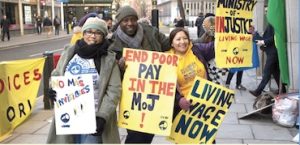Since March 5th, thousands have had enough of Mario Abdo Benítez and the Colorado Party’s corruption and inaction regarding the COVID-19 pandemic and have taken to the streets.
Since March 5th, thousands have had enough of Mario Abdo Benítez and the Colorado Party’s corruption and inaction regarding the COVID-19 pandemic and have taken to the streets. The unacceptable deterioration of millions of people’s living conditions and the collapse of the healthcare system are entirely the fault of the government and parliament. For these reasons, the working class has been organizing demonstrations on a continuous basis to call for the resignation of Abdo Benítez, the rebuke of businessman/gangster Horacio Cartes together with the rest of the Colorado Party.
By Daniel Sugasti, translated to English by Carlos Jara
Given the strong base of support for the ongoing protests, we need to develop a deeper analysis of the corruption and “mismanagement” of the twin crises of healthcare and the economy. These crises are the inevitable results of the capitalist mode of production that reigns over Paraguay and the rest of the world.
Abdo Benítez and other bourgeois heads of state are tasked with organizing their countries’ politics and economies in line with the iron laws of capitalism: profit at any cost, wealth for a handful of rich businessmen on the backs of millions of dead, killed by the pandemic or by starvation. The ministers in government are none other than the managers of an ongoing genocide.
All of these politicians strictly follow the orders that dictate that the economy must remain open for the benefit of the capitalists, no matter how many people are infected and dying. They treat us like cattle, stating that they hope that the virus will continue to spread until we reach herd immunity.
Sabotaging public healthcare to justify its privatization
Under capitalism, health, a human right, becomes a commodity. It is only obtainable for those who can afford to pay the price for the “service”.
According to data from 2018, 73% of the population of Paraguay lacks access to medical coverage. In rural regions, this number goes up to 86%.[1] In the middle of this terrifying situation, private healthcare, which covers around 7% of the population, has been growing at the expense of public healthcare, often supported directly by the state.
Between 2010 and 2019, the government of Paraguay earmarked $400 million USD to purchase private health insurance plans split across the four main providers in the country: Asismed S.A., Santa Clara Medicina Pre Paga S. A. (now known as Sanatorio Británico S. A.) Protección Medica S. A., and Servicios Médicos Migone S. A., which all together provide services to fifty state institutions.[2]
The governments’ ineffectuality in the face of the health crisis is no accident, but rather a deliberate set of policies: keep public healthcare in a state of disarray in order to justify the necessity of a private takeover that can provide “complete and truly efficient services” that the state is supposedly unable to provide itself.
These private corporations, in addition to filling their own pockets with public funds, proceed to fleece their patients as well, especially those that need extensive treatment. There are hundreds of reports of not only malpractice, but also absurd price tags for healthcare at private institutions.[3]
The explanation is simple: if the state were to guarantee the availability of quality, public, universal, free healthcare, private healthcare would have no reason to exist. The problem is that under capitalism, the right to health is incompatible with corporations’ thirst for profits.
This is the underlying reason for the deliberate sabotage of the public health system, which is now totally overwhelmed, unable to meet the demand for intensive care beds, medications, trained specialists, or basic supplies, to say nothing of vaccines. Public healthcare in Paraguay is on life support and its prognosis is dire.
Profits first, health can wait
This reality, undergirded by the logic that “some must die in order for the economy to continue”, is an excellent opportunity for some of the rich to become even richer.
The $1.6 billion USD of international credit taken out by the government one year ago to help cover healthcare has disappeared.[4] Truly, this is a repeat of the same old story of sovereign debt in the capitalist periphery: it was not requested by the people, nor was it used to aid the people. The borrowed money stayed in the hands of the rich.
The Colorado Party government only ended up using 41% of the $426 million USD earmarked for healthcare under the emergency health law.[5] But it’s not clear where they even spent that money, given that there are critical shortages of supplies at hospitals across the country, nor is it clear where the other 59% went. The only thing we know for sure is that the ruling class expects workers to make up the difference.
The question of medical supplies is yet another issue that is determined by the ruling class. It is outrageous enough to see evidence of blatant corruption, “leaks” of medicine stolen directly from government supplies and distributed throughout the private sector, a web of corruption that involves both the major industries and the state ministries of the country. Even worse, we are experiencing a form of “legal robbery” thanks to the bidding system for medicine purchases. For example, the government of Paraguay gave the Ferreira group around $12.7 million USD, the Scavone group $6.2 million, and the Harrison Group $4.2 million in exchange for basic medical supplies. For the construction of additional emergency medical facilities, Implenia received $1.6 million, Tecnoedil received $1.2 million, and Jiménez Gaona $749 thousand.[6] To stock up on atacurium and midazolam, critical medications necessary for intubated patients, the state contracted with companies such as FUSA SA, Vicente Scavone, Bioethic Pharma, and others. But despite having already received their payments, these companies have yet to make good on their shipment of 50,818 units of atacurium and 356,638 units of midazolam.[7]
COVID-19 cases have risen by 66% over the last month, and the people in the streets justifiably ask, “where are the medications and the emergency facilities?” The most likely answer is that they are all still in the warehouses and asset ledgers of the companies that were contracted, because in the hospitals sick patients pack the hallways.
Public funds are transferred to the usual set of businessmen. The economist Verónica Serafini stated a few days ago that 60% of the contracts for the purchase of medical supplies have been allocated to companies owned by six families.[8] The battle for control of the state under capitalism is a battle of who can get the best business deals.
The juicy business of vaccines
Following the outbreak of popular rebellion, the government’s vaccination efforts took on a greater degree of urgency. In South America, Paraguay is the farthest behind in vaccination efforts. The government has obtained 4,000 doses of Sputnik V and 20,000 of CoronaVac, all donated by Chile. This is next to nothing. At this rate, the country will reach the necessary 70% vaccination rate by September of 2053.[9]
In the middle of this crisis and the government’s sudden scramble for vaccines, three Paraguayan companies, Index SACI, Lasca, and Quimfa, quickly appeared to declare that they were ready to import up to 3 million doses of CoronaVac from China. But there’s a catch: for a dose that fetches between $10 and $13 on the international market, these companies are demanding that Paraguay pay them $33.[10] Index SACI, owned by the family of ex-president and business magnate Juan Carlos Wasmosy, is in the best position to take advantage of the demand for vaccines.[11]
Capitalist firms in the vaccine business are making windfalls thanks to a handful of imperialist countries’ refusal to break international patents on the vaccines. Last week, at a meeting of the World Trade Organization, India and South Africa presented a proposal to suspend copyrights on vaccines, medications and medical supplies for the duration of the pandemic. The US, the EU, and a few other rich countries, as expected, rejected the proposal out of hand. Among the “middle and low class” countries, Brazil was the only country that opposed the proposal. Consequently, this makes it impossible to apply idle industrial capacity to accelerate the production and distribution of vaccines and medical supplies necessary to defeat COVID-19. The outrageous insistence by the bourgeoisie that patent laws remain inviolable will directly result in a genocide at the peripheries of the capitalist world system.
The current situation means that now more than ever we must fight to end patents on vaccines, as it is the only way to stop mass murder on a global scale.
Nevertheless, the horrors continue to pile up. As thousands become infected, exposed to the virus because they are forced to report to work in order to have enough money to eat, as hundreds fall extremely ill and require hospital beds (and let’s not forget that in Paraguay these are underestimates, counting only those that the beleaguered healthcare system is aware of), public resources continue to be diverted into the bank accounts of a handful of rich families.
Corruption is intrinsic to capitalism
In order to properly understand the current crisis, we need to analyze the confluence of corruption, mismanagement, and capitalist logic. Corruption is intrinsic to capitalism, a system that arose and maintains itself on the basis of theft and violence against the exploited and oppressed. From the point of view of the rich and powerful, the “mismanagement” driving the people into the streets to protest is actually excellent management, the leveraging of a public health catastrophe into a source of profit for their businesses.
The same bourgeois factions, the exact same people who complain about the “inefficiency of the public sector” and who demand the “shrinking of the state”, are in fact the state’s number one beneficiaries. This is because the state, rather than playing the role of a neutral arbiter for the common good, is in fact an institution with a class character. Under capitalist class society, the state exists to serve imperialism and the local bourgeoisie. Because Paraguay is situated on the periphery of the capitalist world system, its ruling class is constantly perched on the back of the state, always looking for ways to enrich itself, whether through legal means (privatizations, deficit spending) or through illegal ones (theft and embezzlement). It is for this reason that these factions of the bourgeoisie always call for “minimal intervention” when it comes to providing quality public services, but “maximum support” when it comes to business deals and putting down protests.
Is the problem the Colorado Party, Abdo Benítez, Cartes, corruption and mismanagement? Without a doubt, the whole political establishment needs to be done away with. But at the end of the day, the true problem is the system that created these problems, peripheral capitalism, tormentor of the poor and servant of imperialism and the bourgeoisie. The provincial bourgeoisie of Paraguay administers a brutal regime of agro-narco-smuggler’s capitalism.
The fall of the current government and the demand of “everyone must go” must be the first steps towards the deepening of our mass movements and the establishment of a revolutionary socialist alternative that can defeat the source of all of our problems: capitalism.
The original version of this article can be found in Spanish here
Footnotes
[1] See: < https://www.abc.com.py/edicion-impresa/economia/2019/12/03/solo-el-27-de-la-poblacion-accede-a-un-seguro-medico/ >.
[2] See: < https://www.abc.com.py/edicion-impresa/politica/2019/07/09/seguro-medico-de-funcionarios-le-costo-us-400-millones-a-ciudadania/ >.
[3] See: <https://www.lanacion.com.py/mitad-de-semana/2019/08/28/asi-operan-empresas-de-medicina-prepaga-en-el-pais/ >.
[4] In 2020, debt rose to $1.2 billion USD, equal to 34.2% GDP. To fight the pandemic, the government took out an additional $1.9 billion
[5] See: <https://www.ultimahora.com/nuevo-ministro-debe-mejorar-el-uso-los-fondos-salud-n2930300.html>.
[6] Data from <https://controlciudadanopy.org/>.
[7] See: : < https://www.abc.com.py/nacionales/2021/03/08/tras-crisis-van-concretando-compras-de-medicamentos-via-excepcion/ >.
[8] See: <https://twitter.com/veronica_serafi/status/1370345602110918676 >.
[9] Data from <https://covidvax.live/location/pry> al 14/03/2021.
[10] See: <https://bit.ly/3rMQe69>.
[11] See: <https://www.hoy.com.py/nacionales/firma-paraguaya-podra-traer-3-millones-de-vacunas-en-15-dias-salud-debe-aceptar-hoy>.




